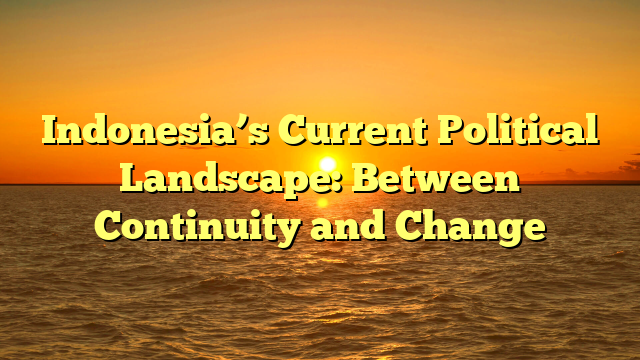Indonesia, the world’s third-largest democracy, is undergoing a pivotal moment in its political journey. As the country moves beyond the recent elections and prepares for a new administration, the dynamics between continuity and change dominate the national discourse. With its maritim4d large population, diverse cultural fabric, and strategic role in Southeast Asia, Indonesia’s political direction will have implications both domestically and internationally.
One of the most pressing issues in Indonesian politics today is the transition of leadership from President Joko Widodo, widely known as Jokowi, who has completed his two terms in office. Jokowi’s administration is remembered for major infrastructure projects, the relocation of the capital city to Nusantara in East Kalimantan, and efforts to strengthen Indonesia’s global economic ties. His legacy is complex, as he has been praised for modernizing the nation but also criticized for concerns about democratic backsliding, restrictions on civil liberties, and environmental challenges related to development.
The election of Prabowo Subianto as the incoming president signals both change and continuity. Once Jokowi’s rival, Prabowo later became defense minister in Jokowi’s cabinet, which helped bridge political divides. His victory reflects the durability of established political elites in Indonesia while also raising questions about how he will govern differently from his predecessor. Many analysts predict that Prabowo will maintain Jokowi’s economic agenda, particularly infrastructure expansion and investment attraction, while potentially adopting a more assertive stance on national security and foreign policy.
Another important dimension of Indonesian politics is the strength of its democratic institutions. While Indonesia has held regular and peaceful elections since the fall of Suharto’s authoritarian regime in 1998, recent years have witnessed challenges to press freedom, judicial independence, and minority rights. The rise of identity politics, particularly the use of religion in electoral campaigns, continues to influence public debates. Civil society groups remain active, but concerns persist about shrinking space for dissent and increasing political polarization.
On the international stage, Indonesia continues to play a balancing role. As the largest economy in Southeast Asia, it is a key member of ASEAN and an influential voice in regional diplomacy. Indonesia seeks to navigate the competition between the United States and China while prioritizing national interests. Its “free and active” foreign policy principle guides Jakarta to maintain independence in global affairs, though domestic politics inevitably shape its international outlook. Prabowo’s leadership will likely emphasize defense modernization and strategic autonomy while still pursuing foreign investment opportunities.
Domestically, economic issues remain central to the political debate. With a young population and growing middle class, Indonesia faces both opportunities and challenges. High levels of inequality, corruption, and unemployment continue to test the resilience of the political system. The government’s ambitious plan to develop the new capital city reflects its desire to decentralize economic activity from Java, but questions about environmental sustainability and financial feasibility linger. These policy debates will shape public trust in the new administration.
In conclusion, Indonesian politics today reflects a delicate balance between continuity and change. The transition from Jokowi to Prabowo represents not just a shift in leadership, but also a test of democratic resilience and governance capacity. As the country charts its course in an increasingly uncertain world, the choices made by its leaders will determine whether Indonesia strengthens its democratic foundations or faces deeper political and social challenges. The coming years will be crucial in defining the next chapter of Indonesia’s democratic journey.
